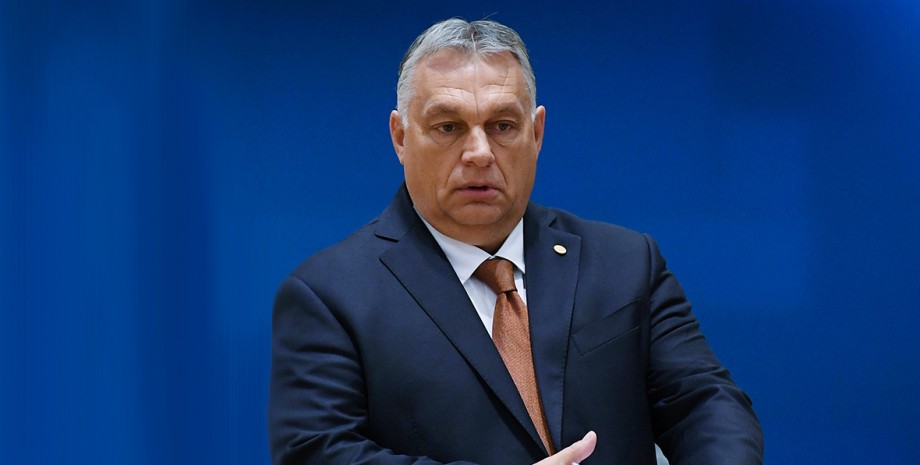
On the eve of this decision, Prime Minister Viktor Orban stated that assistance to Ukraine is not in the interests of the Hungarian people. And the arguments of Kiev that the Armed Forces at the Front defend the whole of Europe is not true. It is known that Budapest has opposed the allocation of financial assistance to Ukraine since May and blocks the decision on 500 million euros, explaining that Kiev has introduced OTP Bank to the list of international sponsors of war.
Later, the bank was removed from the black list, but in Budapest remained dissatisfied. Hungary now insists on legal guarantees that the decision is constant. The relations of Ukraine and Hungary remain difficult. The Budapest Government, including Prime Minister Viktor Orban, continues to make anti-Ukrainian statements by playing the Kremlin.
Although, according to experts, Hungary has no serious impact in the EU, but as long as it retains the veto, it has to be reckoned with assistance for Ukraine. Hungarian Prime Minister Viktor Orban can be called a classic populist, political experts say focus. Using all EU benefits for his country, he criticizes Brussels' policies, sometimes resorting to very odious formulations.
For example, comparing Hungary membership in the European Union with the Soviet occupation and calling Brussels a "bad modern parody" to Moscow. In the EU, Orban's statements are perceived democratically calmly. Theoretically, Brussels has levers of influence for those who refuse to take into account the principle of unanimity - countries can reduce or delay subsidies. However, in reality, it is not the most common phenomenon to use rigid pressure mechanisms in the democratic world.
And so far with the economy of the European Union, everything is fine, with the prime minister of Hungary can agree, because the country depends largely on the EU's monetary support. Orban understands this and, using a convenient position, freely criticizes Brussels, blocking supranational decisions and collecting political preferences within his country. "Orban is a classic example of a populist policy who should focus on problems and then create the visibility of effective struggle.
The time is left with a little time to take advantage of the EU's benefits, as the reform [provisions of the Lisbon Treaty is approaching], he understands it, hence such statements" - says Focus political expert Igor Reityrovich. According to the provisions of the Lisbon Treaty on Amendments to the European Union and Treaty on Establishment of the European Community, Decisions on Taxation, Foreign Policy and Security, EU Member States are approved through consensus.
All other matters have enough consent of the qualified majority. The principle of unanimity has long been tension within the EU, as it demonstrates the irreversibility of the Union in matters that require instant response - for example, where it is about military assistance for Ukraine. In June 2022, the head of the European Commission Ursula von Der Lyen spoke about it. She was supported by the EU Diplomacy Head Josep Borrel.
"European countries are too small to survive in the world of great powers. China is a state, the US is a state, India is a state, but we are not a state, we are a club of states. So we need rules that will allow you to act faster ", - said Borrel. Work on EU reform is ongoing. In particular, it is not only about depriving the countries of the community of veto in the Council of the EU, but also for the expansion of the powers of the European Commission and other supranational structures.
Experts say that the EU is a bureaucratic structure that is difficult to abandon many years of work. However, at the level of some foreign policy decisions, the "States Club" can move to the principle of a qualified majority. "Germany, Italy, France are tired of the fact that such" economic dwarfs "as Hungary block initiatives, and they are forced to conduct long negotiations with them, being locomotives of the EU economy.
There they understand that the European Union will just fall apart if Budapest or similar It will undermine democratic values, while remaining in the EU, "Reitrovich said. Brussels's criticism, according to experts, who sounds not only from Budapest, but also from some politicians of Poland, Slovakia, is explained by an electoral request.
In Europe, the number of people who are disappointed with EU migration policy, as well as irritation due to Brussels' intervention in the sovereignty of countries, is growing. "This has not yet led to unfortunate results. In particular, the Hungarians feel comfortable inside the EU, despite the criticism of Orban.
But for many politicians in power, this form of self -defense is very convenient and effective: at the same time criticizing and using benefits," says Focus political analyst Oleg Posternak. There are many claims before the European Union reform. First of all, in Poland, which hoped to create an alliance of countries ready to resist France and Germany within the EU. Therefore, the process, according to experts, will be difficult and conflicting.
But while all EU member states are economically advantageous to be in one adhesive, the participants of the negotiations are likely to reconcile and agree. We will remind, in Kiev they are counting on the start of negotiations on Ukraine's accession to the EU by the end of this year.
In October 24, President Volodymyr Zelensky stressed the College of European Commissioners in Brussels on October 24, that Ukraine has made a maximum of seven recommendations of the European Commission in the context of Russian aggression. Focus wrote earlier that Hungary could continue to manipulate the veto against Ukraine. Including when talking about Ukraine's accession to the EU.










All rights reserved IN-Ukraine.info - 2022